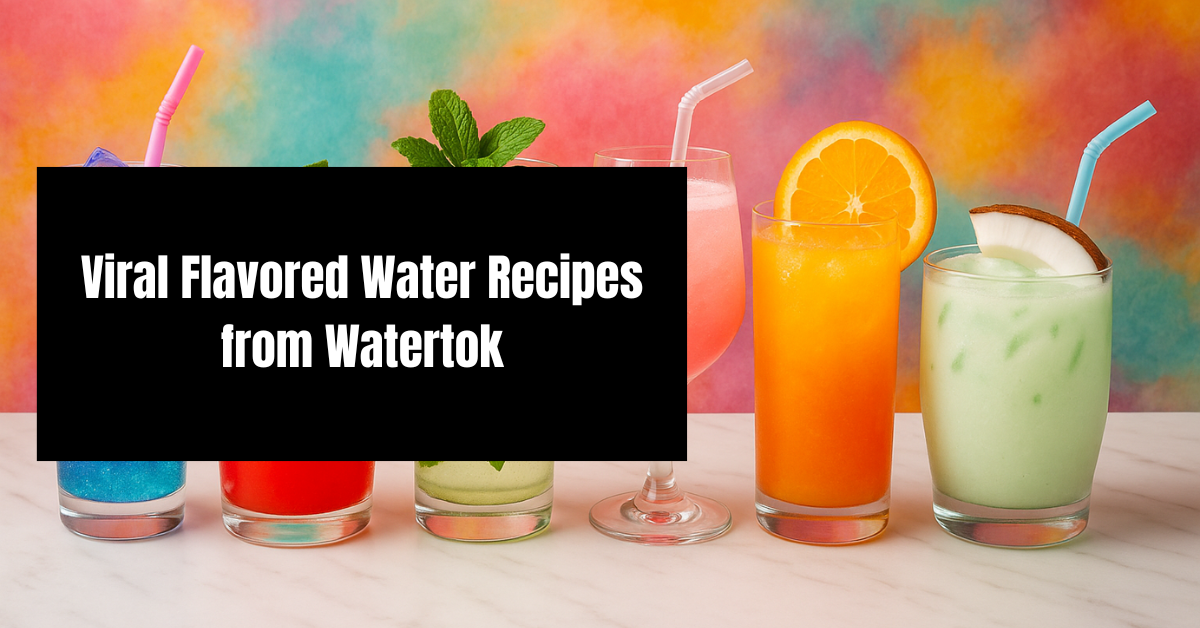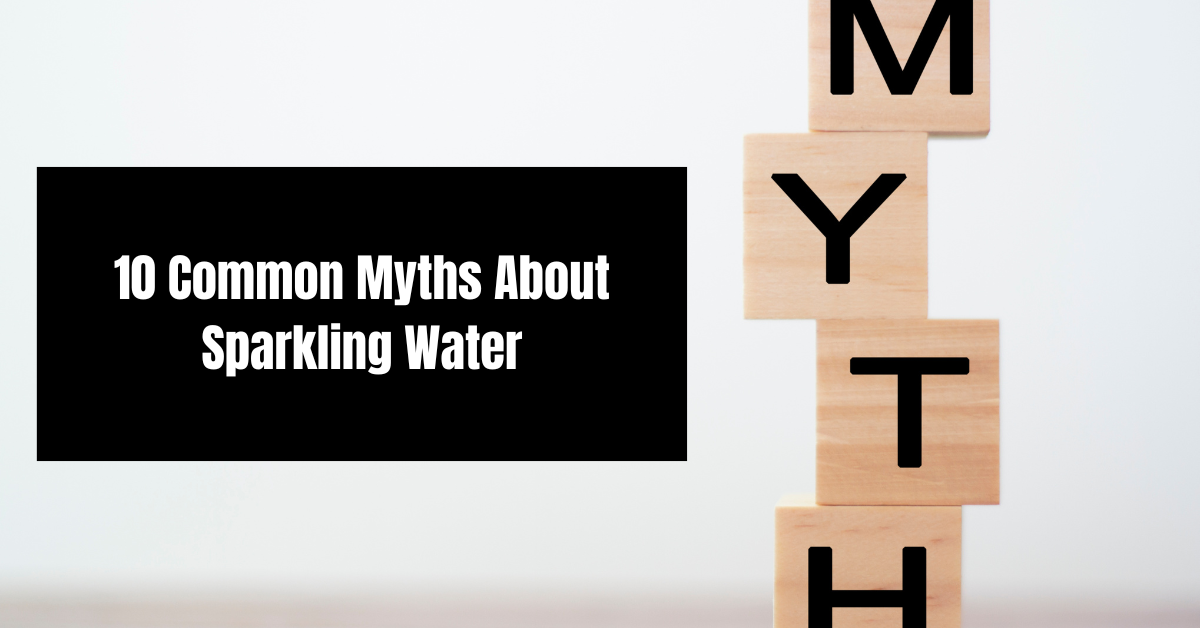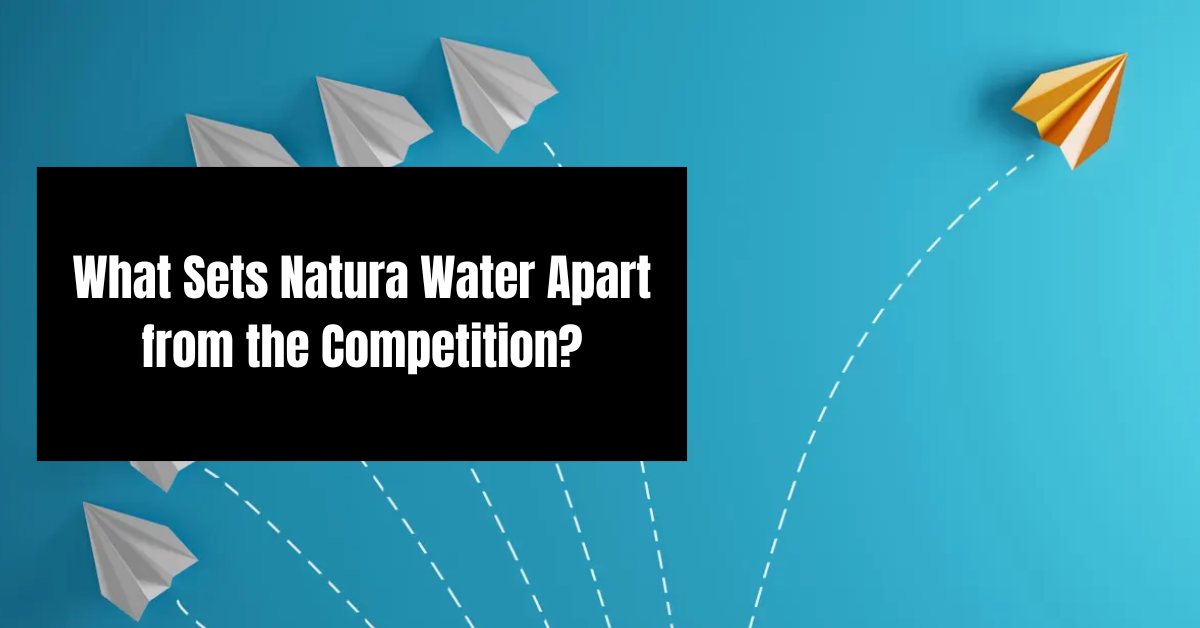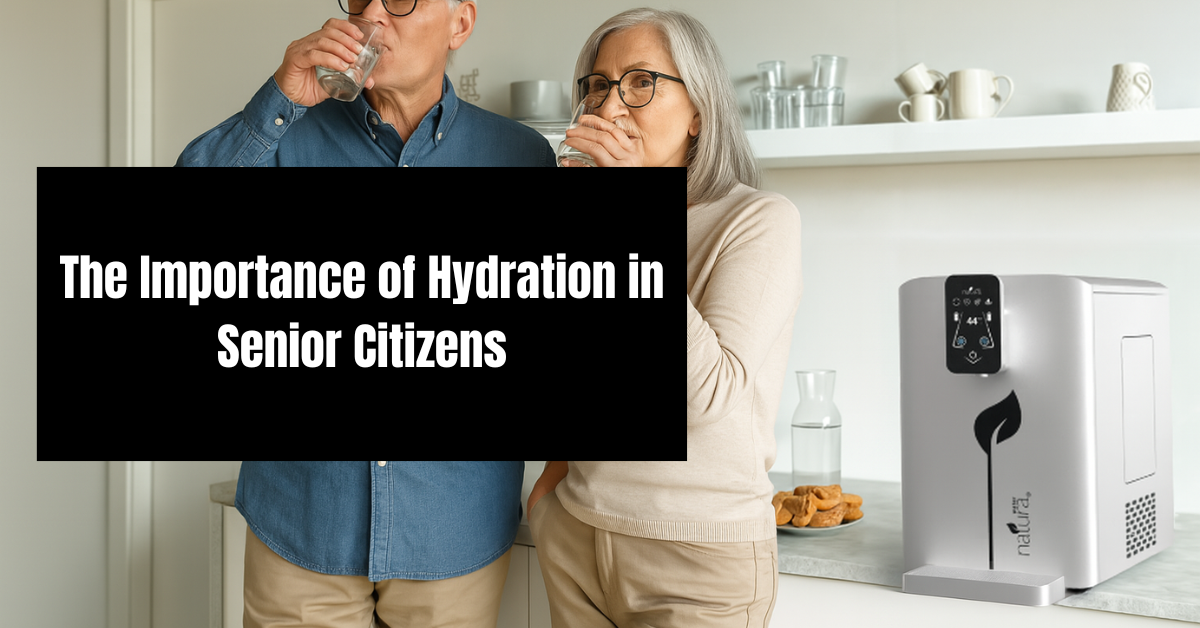10 Common Myths About Sparkling Water
10 Common Myths About Sparkling Water You Need to Stop Believing
1. Sparkling Water Dehydrates You
- Myth: Sparkling water causes dehydration because of its carbonation.
- Fact: The carbonation in sparkling water does not impact hydration levels. Just like still water, sparkling water contributes to daily hydration needs and helps maintain bodily functions. Carbon dioxide (CO2), the gas used to create bubbles, is simply dissolved in the water, and it doesn’t absorb water from your body. Whether the water is carbonated or not, it remains just as effective in hydrating you. The myth likely arises from concerns about carbonation causing a "diuretic" effect, but research shows that sparkling water doesn’t lead to dehydration any more than regular water. If you’re looking for sources, check out hydration studies from reputable health organizations like the Mayo Clinic or the National Institutes of Health (NIH).
2. Sparkling Water Is Bad for Your Teeth
- Myth: The bubbles in sparkling water erode tooth enamel.
- Fact: Sparkling water is slightly acidic due to the dissolved CO2, but its pH level is still much higher than that of sugary sodas or fruit juices. Research has shown that plain sparkling water, without added sugars or acids, poses minimal risk to dental enamel when consumed in moderation. It’s still important to avoid excessive acidity and minimize prolonged exposure of teeth to carbonated drinks, but in general, sparkling water is far less harmful to your teeth than sodas. If you’re looking for evidence, a study published in the Journal of the American Dental Association (JADA) concluded that plain sparkling water is unlikely to cause significant harm to tooth enamel.
3. Sparkling Water Causes Bloating
- Myth: The carbonation in sparkling water leads to bloating and discomfort.
- Fact: The carbonation in sparkling water can lead to a feeling of fullness or mild bloating, especially if consumed quickly or in large quantities. However, this effect varies from person to person. Some individuals may be more sensitive to carbonated beverages, especially those with digestive issues like irritable bowel syndrome (IBS). However, the majority of people can drink sparkling water without experiencing bloating or discomfort. The bubbles in sparkling water are simply CO2, which is released as gas, not liquid. For scientific reference, you can check articles from the American Gastroenterological Association on the general safety of carbonated drinks.
4. Sparkling Water Has the Same Effects as Soda
- Myth: Sparkling water is just as bad for you as soda.
- Fact: Sparkling water and soda are vastly different in terms of health impacts. Sparkling water contains no added sugars, artificial sweeteners, or caffeine, which are often found in sodas. In contrast, sodas are typically packed with high amounts of sugar, which can lead to weight gain, increased risk of diabetes, and poor dental health. Sparkling water, on the other hand, is a calorie-free beverage that can be an excellent alternative to sugary drinks. The American Heart Association has repeatedly highlighted the health risks of sugary sodas, but sparkling water is not in the same category.
5. Sparkling Water Can Cause Acid Reflux
- Myth: The carbonation in sparkling water triggers acid reflux.
- Fact: Carbonated beverages can cause acid reflux in some individuals due to the carbonation increasing gas and pressure in the stomach, which may push stomach acids up into the esophagus. However, for most people, sparkling water is less likely to trigger acid reflux than sodas or caffeinated drinks. If you experience discomfort, it may be specific to your digestive system, but there’s no universal rule that sparkling water causes acid reflux. The American College of Gastroenterology provides extensive resources on triggers for acid reflux and notes that carbonated water is often less problematic than other carbonated drinks.
6. Sparkling Water Isn’t Healthy
- Myth: Sparkling water offers no health benefits.
- Fact: Sparkling water offers the same hydration benefits as still water, which is essential for maintaining bodily functions such as temperature regulation, joint lubrication, and nutrient absorption. Additionally, some sparkling waters contain minerals like magnesium, calcium, and potassium, which can support overall health. It’s a great alternative for people who want a fizzy sensation without the added sugars, artificial additives, or caffeine found in many soft drinks. If you need more info, the National Health Service (NHS) offers guidelines on the importance of staying hydrated and the health benefits of drinking water.
7. Sparkling Water Can Contribute to Weight Gain
- Myth: Drinking sparkling water will lead to weight gain.
- Fact: Sparkling water contains no calories, so it cannot directly contribute to weight gain. In fact, choosing sparkling water over sugary sodas or energy drinks can actually help you reduce calorie intake, which may aid in weight management. Some people mistakenly assume that carbonated water could cause bloating or an increase in appetite, but research shows that it does not lead to significant weight gain. For more insights into hydration and weight management, you can refer to studies conducted by the Harvard T.H. Chan School of Public Health.
8. Sparkling Water Is More Acidic Than Regular Water
- Myth: Sparkling water is much more acidic than still water.
- Fact: Sparkling water is slightly more acidic than still water, but its pH is still significantly higher than that of sodas or fruit juices. The slight acidity comes from the dissolved CO2, which forms carbonic acid. However, the pH of sparkling water typically ranges between 5.0 and 6.0, whereas sodas can have a pH as low as 2.5. As a result, sparkling water is far less likely to harm tooth enamel or cause digestive discomfort than acidic drinks like soda. For detailed pH comparisons, check out scientific articles on water pH levels from organizations like the International Bottled Water Association (IBWA).
9. All Sparkling Water Brands Are the Same
- Myth: All sparkling water tastes and feels the same.
- Fact: Not all sparkling water brands are the same. Different brands offer varying levels of carbonation (from lightly fizzy to very bubbly), and the mineral content can also vary, affecting the taste. Some sparkling waters are sourced from natural springs and contain minerals like calcium, magnesium, and sodium, which can influence the flavor. Others may be more neutral in taste. The level of carbonation also affects the mouthfeel, with some people preferring a soft fizz while others enjoy a sharper, more intense effervescence. For an in-depth review of sparkling water varieties, websites like Consumer Reports or The Spruce Eats provide comparisons based on taste tests.
10. Sparkling Water Can Give You a “Soda” Addiction
- Myth: Drinking sparkling water leads to soda cravings.
- Fact: Sparkling water does not contain sugar, caffeine, or other addictive chemicals found in sodas, so it’s highly unlikely to trigger soda cravings. Many people find that drinking sparkling water can actually help them curb cravings for sugary sodas because it provides a satisfying, bubbly experience without the sugar. In fact, some individuals use sparkling water as a way to wean off soda, as it offers the same fizzy sensation without the unhealthy additives. There are no studies linking sparkling water to increased soda cravings. You can read more about the benefits of replacing soda with sparkling water in health articles from sources like the Centers for Disease Control and Prevention (CDC).
Want to learn more? Click here here to schedule a meeting!
Recent Posts

💧 Viral Flavored Water Recipes from Watertok—Made Better with Natura Water If you've spent any time on TikTok lately, you've likely come across Watertok—a viral movement where creators craft colorful, crave-worthy flavored water recipes using everything from sugar-free syrups to fresh herbs and edible glitter. More than a trend, Watertok is redefining how people think about hydration—making it exciting, playful, and personal. But here’s something the trend doesn’t always talk about: the quality of the water itself. No matter how creative your ingredients are, the foundation of every great recipe is clean, pure, better-tasting water. And that’s where Natura Water comes in. Natura Water’s advanced, bottle-free water systems are trusted by restaurants, offices, and homes alike to deliver still and sparkling water on demand—filtered, chilled, and ready to elevate any drink, especially the viral ones. Below, we highlight some of Watertok’s most beloved recipes and show you how they’re even better when made with Natura Water. 🌟 Why Natura Water Is the Perfect Watertok Partner Before diving into recipes, here’s why people are turning to Natura Water to upgrade their hydration experience: Advanced Filtration: Removes impurities, chlorine, and off-flavors for crisp, clean water. Still & Sparkling Options: Custom recipes often call for both—Natura gives you both at the push of a button. Sustainable: No more single-use plastic bottles or waste. Always Chilled: Cold water on demand makes every Watertok drink instantly refreshing. In other words, whether you’re creating “Unicorn Water” or a classic cucumber-mint infusion, Natura still or sparkling water is the ideal base for every blend. 🦄 1. Unicorn Water (Sparkling) A TikTok classic. Sparkly, sweet, and fantasy-inspired. Ingredients: Sparkling water from your Natura Water system 1 pump blue raspberry syrup (sugar-free) 1 pump cotton candy syrup Edible glitter (optional) Ice Directions: Add the syrups and glitter to a tall tumbler filled with Natura sparkling water. Stir and sip. With Natura’s ultra-fine bubbles, the shimmer effect is mesmerizing. 🍉 2. Watermelon Jolly Rancher (Still) A refreshing, candy-inspired recipe that tastes like your childhood. Ingredients: Still water from Natura Watermelon flavor drops Fresh lime juice or a splash of lime syrup Ice Mint leaves (optional) Directions: Combine flavor drops and lime in ice water, stir, and garnish with mint. Natura’s clean-tasting still water keeps the fruity profile front and center. 🥒 3. Cucumber-Mint Spa Water (Still) Naturally infused and ultra-refreshing—perfect for a wellness boost. Ingredients: Still water from Natura Sliced cucumber Fresh mint leaves Lemon wedge Directions: Add cucumber, mint, and lemon to a pitcher of chilled Natura water. Let it infuse for 30 minutes. You’ll taste the difference thanks to Natura’s chlorine-free freshness. 🍓 4. Strawberry Starburst (Sparkling) This one's for the sweet-toothed soda quitters—it hits all the right nostalgic notes. Ingredients: Sparkling water from Natura Strawberry drink mix or syrup Splash of vanilla extract Ice Directions: Combine ingredients in a glass of Natura sparkling water. The micro-carbonation enhances both the flavor and mouthfeel. 🍍 5. Tropical Breeze (Still or Sparkling) Your staycation in a cup. Great for post-workout hydration or lounging in the sun. Ingredients: Still or sparkling water from Natura Mango electrolyte powder Pineapple-coconut syrup Orange slice for garnish Directions: Mix in the powder and syrup with chilled Natura water and garnish. For a fizzy twist, go with sparkling! 🥥 6. Coconut Cream Cooler (Sparkling) Smooth, tropical, and totally viral. Ingredients: Sparkling water from Natura Coconut syrup White chocolate or vanilla syrup Ice Directions: Stir both syrups into sparkling water over ice for a dessert-style refresher. Natura’s fine bubbles ensure the syrups mix evenly without settling. 💡 Pro Tip: Build a “Hydration Station” with Natura Many Watertok fans are now creating home water bars—dedicated spaces with syrups, fruit, tumblers, and reusable straws. Add a Natura Water system to the mix, and you’ve got a full hydration station that’s functional, eco-friendly, and ready to serve your most creative water recipes anytime. 🎯 Why Watertok + Natura = Hydration That Sticks The magic of Watertok lies in making hydration fun. But the magic of Natura is in making hydration effortless. When you combine the two, you get: Motivation : With fun recipes and on-demand water, it’s easier to meet your hydration goals. Consistency : No need to buy bottles or wait for chill time—Natura is always ready. Quality : Filtered and chilled water you can trust—better for your health, and better for your taste buds. Final Sip Watertok isn’t just a TikTok fad—it’s part of a cultural shift toward making health habits joyful and sustainable. And when your water source is as clean, convenient, and carbonated as Natura Water, every recipe gets a serious upgrade. So whether you're making Unicorn Water for your kids, Tropical Breeze after a workout, or Cucumber-Mint for your next dinner party—do it with Natura, and taste the difference that premium water brings to the table. Ready to transform your water game? Learn more about bringing Natura Water into your home or workplace and start creating your own viral hydration moments—no filters needed (except ours).





